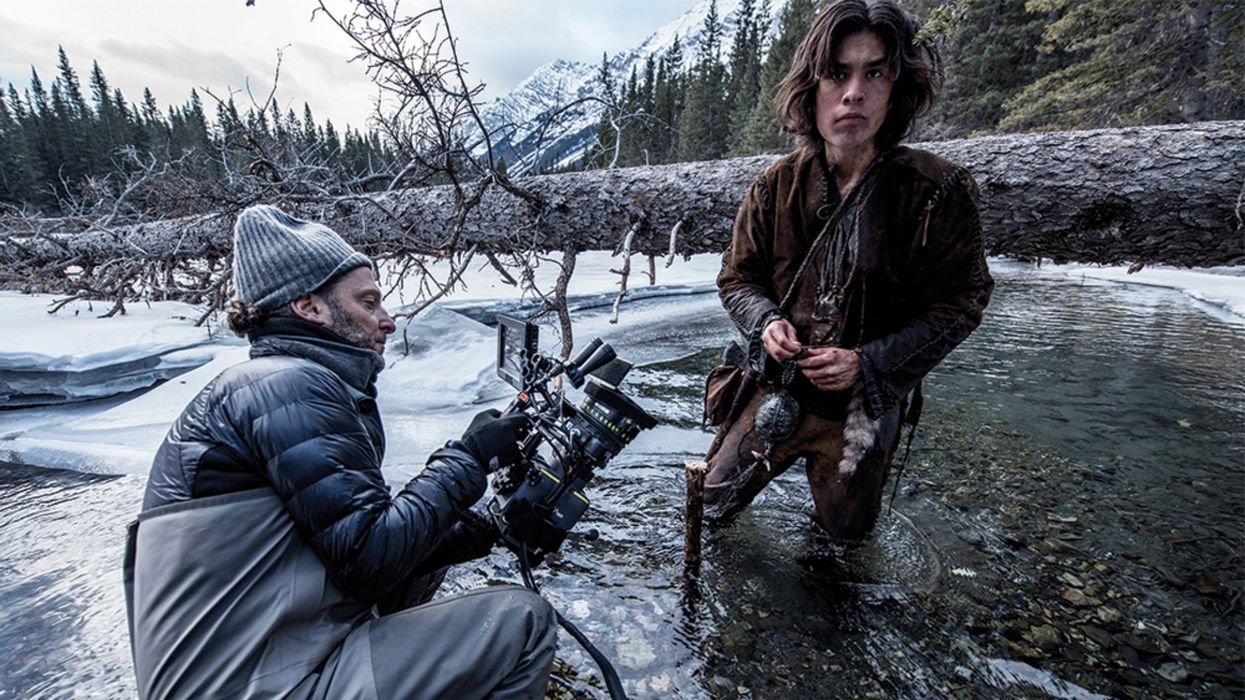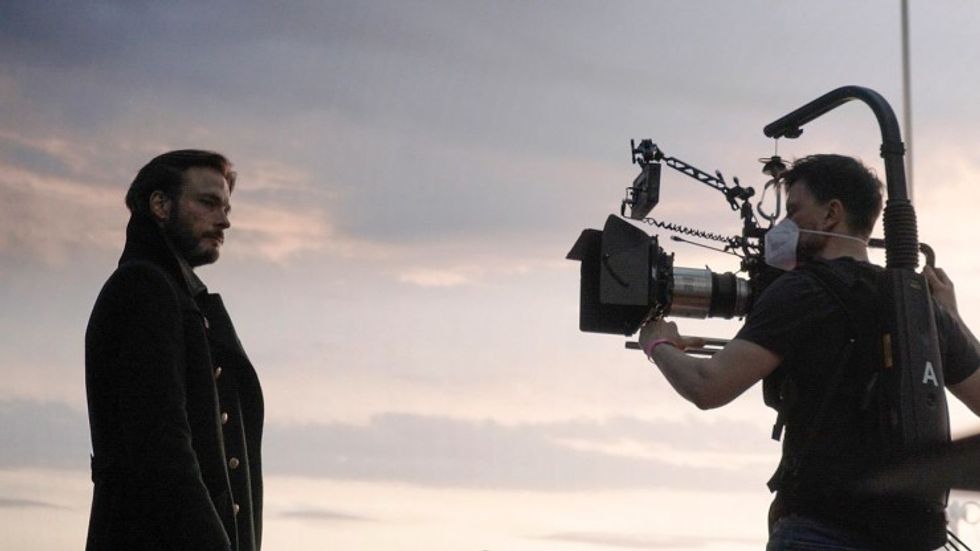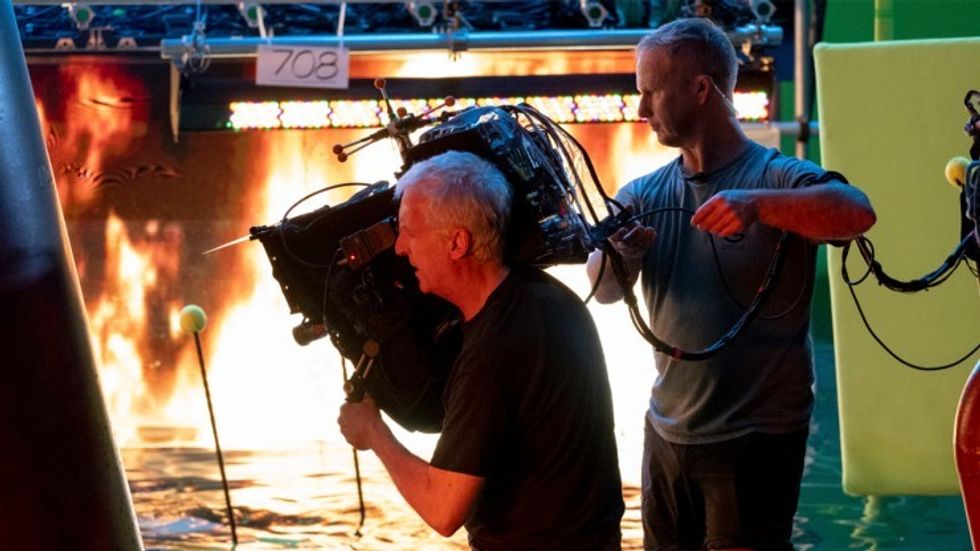10 Questions a Beginning Cinematographer Might Ask (With Answers!)
Let's get you beginners up to speed.

Cinematography is the art and craft of capturing images on film or digital media. It is a vital aspect of the filmmaking process that helps to visually tell the story of a film. You can make money at it, but you have to get good.
As a beginning cinematographer, you may have many questions about how to effectively capture images, work with actors, and collaborate with other members of the film crew.
In this article, we will explore ten common questions that beginning cinematographers might ask and provide insights and tips on how to approach these challenges. From camera equipment and lighting principles to avoiding common mistakes, we will cover the essential aspects of cinematography and help you develop the skills and knowledge needed to become a successful cinematographer.
I took the liberty of hyperlinking each question to an in-depth article on the topic.
Roll the cameras and get learning.

10 Questions a Beginning Cinematographer Might Ask (With Answers!)
1. What kind of camera equipment should I invest in as a beginning cinematographer?
As a beginning cinematographer, you don't necessarily need to invest in the most expensive camera equipment. However, it's important to choose a camera that will allow you to capture high-quality footage and is versatile enough to adapt to different shooting scenarios.
Some popular options for beginning cinematographers include the Canon EOS R, Sony A7S II, and Panasonic GH5.
It's also important to invest in quality lenses, as they can have a significant impact on the look and feel of your footage.
2. What are the key principles of lighting for film, and how do I achieve the right mood for a scene?
The key principles of lighting for film include understanding the quality, direction, and intensity of light. It's important to consider the mood and tone of the scene when choosing lighting techniques and equipment.
For example, a soft and diffused light source can create a romantic or dreamy mood, while harsh and directional lighting can create a sense of tension or drama. To achieve the right mood for a scene, it's important to experiment with different lighting setups and to work closely with the director and other members of the film crew.
3. How do I work with actors to bring out the best performances in a film?
This is more of a director question, but it is important for cinematographers, too. To bring out the best performances, it's important to establish a good working relationship with the actors and to communicate clearly about the intended tone and mood of each scene.
You can also help create a comfortable environment for the actors by paying attention to their needs and ensuring that they feel supported throughout the filming process.
4. How do I choose the right lenses for a particular shot or scene?
Choosing the right lenses for a shot or scene involves considering the desired field of view, depth of field, and focal length. Wide-angle lenses can capture a larger field of view, while telephoto lenses can create a shallow depth of field and emphasize specific details in the frame. It's important to experiment with different lenses and to consider the mood and tone of the scene when choosing the appropriate lens.
5. What is the importance of camera movement in cinematography, and how do I plan and execute camera moves effectively?
Camera movement can help create a sense of movement, tension, or excitement in a scene. To plan and execute camera moves effectively, it's important to consider the intended mood and tone of the scene and to communicate with the director and other members of the film crew about the desired effect. It's also important to use the appropriate equipment and techniques to achieve the desired camera movement.
6. What is the role of color grading in post-production, and how do I achieve the desired look for my film?
Color grading involves adjusting the color and tone of footage in post-production to create a desired look or mood. The role of color grading is to enhance the visual style of the film and to help tell the story more effectively.
To achieve the desired look for your film, it's important to experiment with different color grading techniques and to work closely with a colorist to achieve the intended effect.
7. What are the key differences between shooting for film versus digital media, and how do I optimize my workflow accordingly?
Shooting for film versus digital media involves different technical considerations and workflows. Shooting on film requires careful planning and preparation, as film stock is limited and expensive.
Shooting on digital media offers more flexibility and immediacy, but requires careful management of data and storage. To optimize your workflow accordingly, it's important to understand the technical requirements of both formats and to plan accordingly.
8. How do I approach framing and composition to visually tell the story of a film?
To approach framing and composition to visually tell the story of a film, consider the story and mood of the scene, choose the right aspect ratio, use the rule of thirds, consider the foreground, middle ground, and background, experiment with camera angles, and consider movement within the frame.
9. How do I work effectively with a director and other members of the film crew to achieve the desired outcome?
To work effectively with a director and other members of the film crew to achieve the desired outcome, communicate clearly, be open to feedback and collaboration, understand the roles and responsibilities of each crew member, and be prepared and organized.
Some common mistakes that beginning cinematographers make include improper exposure, lack of attention to framing and composition, not using appropriate camera settings, and not considering lighting. To avoid these mistakes, practice and experiment with different techniques, learn from other experienced cinematographers, and pay close attention to details.

Summing Up 10 Questions a Beginning Cinematographer Might Ask (With Answers!)
Cinematography is a complex and fascinating field that requires both technical skills and artistic vision.
As a beginning cinematographer, you will face many challenges and questions, but with the right knowledge and practice, you can develop your skills and achieve your goals.
By exploring the ten common questions covered in this article, you can gain a deeper understanding of the key principles of cinematography and learn how to effectively collaborate with other members of the film crew to bring your vision to life.
Remember, practice makes perfect, so keep experimenting and learning from experienced cinematographers, and you will be on your way to a successful career in cinematography.
Let me know what you think in the comments.











